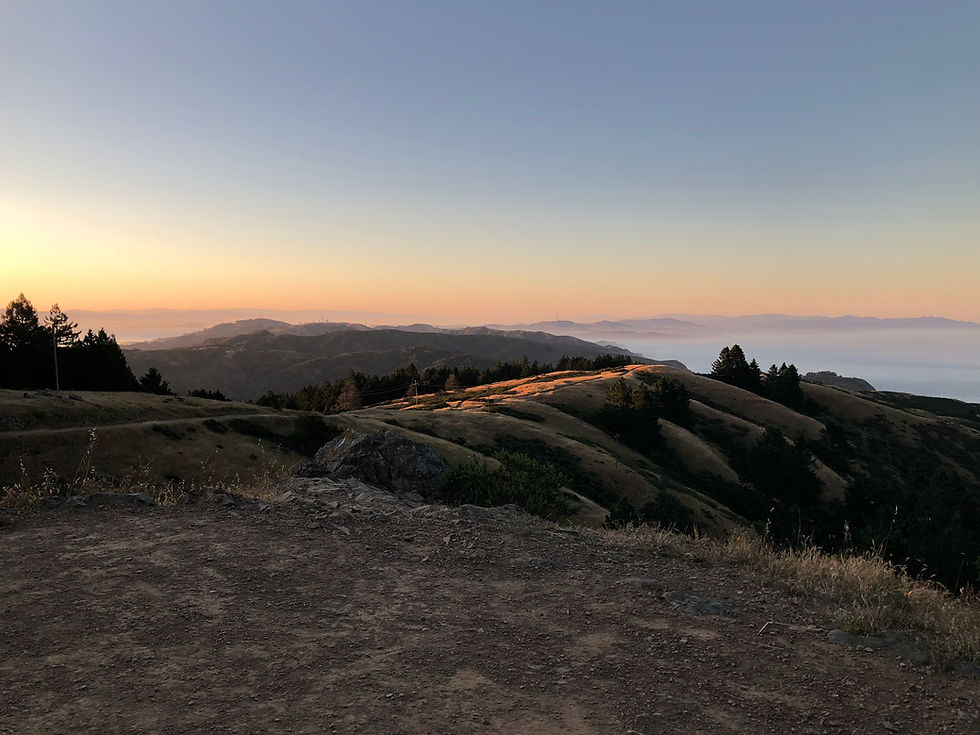How Would Autonomous Cars Change Carpooling Culture?
- Liz from Ridj-it
- Mar 19, 2018
- 3 min read
It’s six o’clock on Saturday morning, and you haven’t passed an open Dunkies yet to purchase liquid alertness. Thankfully, you packed your backpack last night, otherwise you probably would have brought nothing but a blender and a beach towel, or other things useless for hiking. You stumble off the T at the agreed meeting point and find your companions for the day, who all look as zoned out and sleepy as you feel. Panic hits: who is going to sit in front and keep the driver awake?

No one. This is the future, and individual Ridj-it adventurers rented an autonomous vehicle for the day to travel to safely, conveniently and cost-effectively for the environment. At the end of the adventure, everyone who wants to will be able to enjoy a well-deserved beer wherever thirst and hunger leads people for dinner. Hell, with self-driving cars, maybe there are no open container laws - get a case and have a party if the mood strikes you!
Could self-driving cars revolutionize the future of carpooling? Well, we certainly hope so. Besides the obvious benefits listed above, there are several less-obvious reasons that a self-driving car could improve for adventure logistics.
NO MORE INSURANCE COMPANIES
Drivers will not longer have to worry about the ambiguous and muddled laws around carpooling that vary state-to-state since insurance companies will be rendered unnecessary for individual adventurers. Avoiding car crashes from human error is one of the ultimate goals, and our team expects to see more people adventuring with less worry about the disconnect frequently found between transit network companies and governments that can’t keep up.

This won't happen!
LESS DEADHEAD - MORE COMMUNITY INVOLVEMENT
No, not dreadlocks. Deadhead is when a vehicle is sitting idly by doing nothing rather than being productive. Imagine a car full of adventurers from Boston travels to the White Mountains of New Hampshire. Rather than the vehicle waiting around for six to eight hours, that same car could run errands, pick people up, and provide other logistics for nearby rural towns. Ridj-it loves connecting urban and rural spheres together, and this could be another contribution to the same areas adventurers frequent beyond eating in restaurants.
REDUCED SOCIAL ANXIETY OVER PARKING AT TRAILHEADS
The growing interest in outdoor adventures is outpacing local governments’ abilities (or will) to address overflow parking from places like Franconia Notch without damaging tourism. Autonomous vehicles will drop off adventurers and go on their merry way for other operations. The result of this will be freeing up parking spaces, reducing locals’ annoyance with out-of-towners, and preventing potential injury and death from collisions.

NO MORE SPEEDING TICKETS
Staties, our New England way of saying State Troopers, will have to find other ways to raise income for the state. There will be no more $400 tickets for going 23 miles over the speed limit since autonomous vehicles will more easily abide traffic laws. No worries - we respect law enforcement, and we look forward to progressive methods for income collection that state leaders will have to implement that don’t involve punishing residents and visitors. Have Ridj-it drivers gotten speeding tickets? You could bet some good money on that!
BUT WILL ADVENTURERS STILL HOST EVENTS IF THEY DON'T NEED DRIVERS?
Well, until autonomous cars develop charming personalities and the ability to hike steep, narrow trails, kayak, and ride bikes, we feel confident that Ridj-it users will continue to travel in groups. Experiencing the outdoors is just more fun with friends. Plus, it’s the unspoken rule of society that if it’s trendy, it’s expensive, and we predict that autonomous vehicles will be trendy for quite a while. So while the rich, tech-savvy bros are taking selfies - by themselves - on +$200 trips in self-driving cars, the life-savvy people of Ridj-it will be having more fun and saving money by splitting the costs and riding together.
The above are just glimmers of the future we dream of for Ridj-it. Our goal is to provide our users with the best logistics possible while protecting the environment, keeping the outdoors accessible, and creating social capital. How do you think a self-driving car might improve your outdoor experience? What other things do you potentially see in the future of adventure carpooling?




Comments